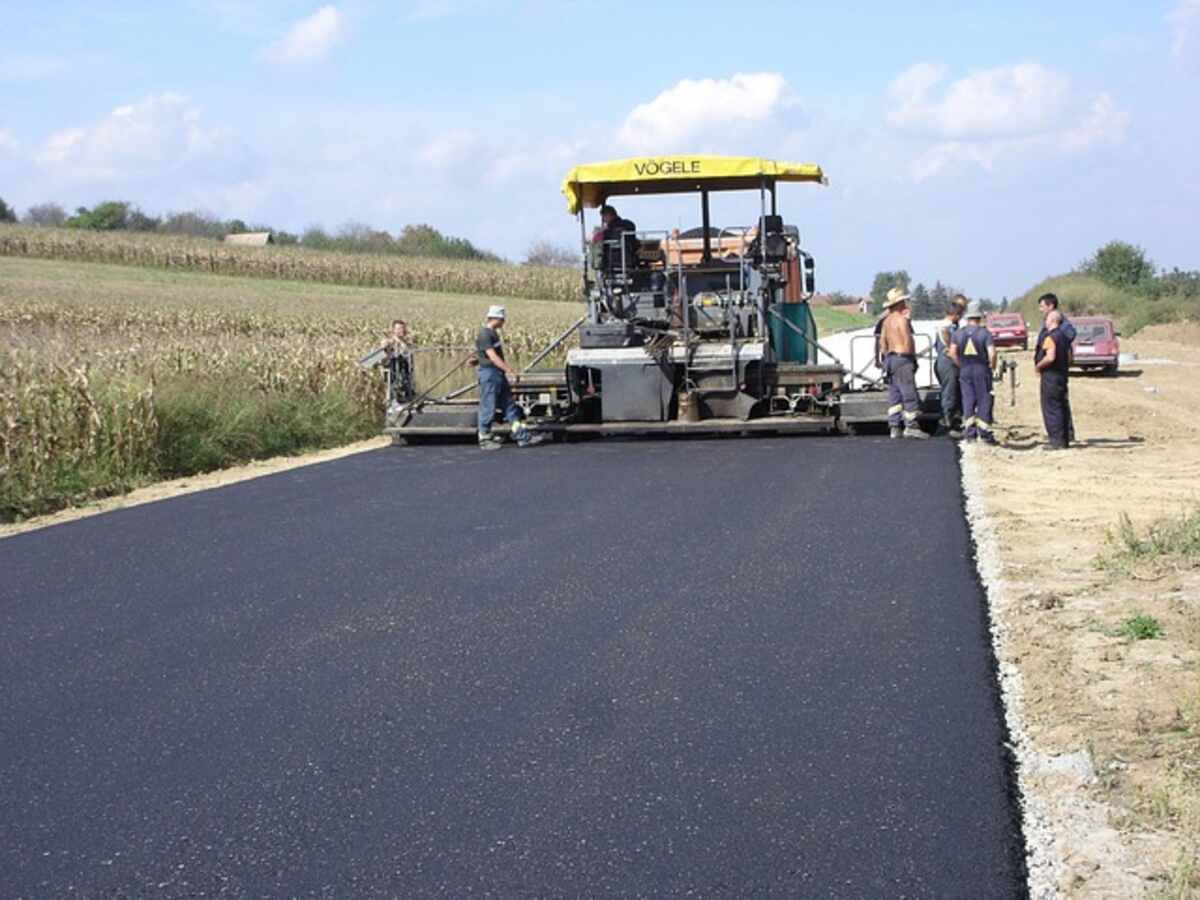Asphalt paving material is one of the most frequently used, being both less costly and more durable than concrete options. Best way to find the Asphalt companies in Greensboro.
Before installing the new surface, a contractor grades the driveway to assist drainage and help with drainage. A sub-base layer – composed of aggregate materials such as crushed stones – is then laid down as a load-bearing support layer.
Preparation
As part of installing an asphalt driveway, the first step should be clearing the area of any debris or vegetation. This provides installers with a clear starting point while also giving them an opportunity to identify any problems that need addressing.
The soil must first be graded and leveled to provide a solid base for pavement, whether by hand or machine, depending on its size. A layer of gravel or crushed stone is then laid onto this preparation before covering it with a binder consisting of bitumen and oil mixture – finally, a proof roll is used to test whether or not this surface can withstand paving operations.
Once all three layers have been laid down, a contractor will then lay a final layer of asphalt to give your driveway that beautiful, jet-black finish you see on roadways and parking lots. Usually, this layer consists of a bitumen-and-oil mixture that provides strength and durability to the finished pavement surface.
If you are thinking about paving your driveway, professional contractors should be hired. Their experts can complete the project faster and to a higher standard than you could do on your own, plus assist in selecting suitable asphalt for your specific climate needs and needs.
Laying
Asphalt paving is a complex task that demands meticulous planning and consideration. Without the necessary equipment to undertake this job yourself, it is best to leave this task to professionals so you can rest easy knowing your driveway will be well cared for and last as long as possible.
As part of laying asphalt, the first step involves clearing away existing concrete, gravel, or pavement surfaces using large machinery like bobcats, skid steers, or excavators. Any waste from this step will then be recycled into usable asphalt for future reuse.
Once the area is clean, a sub-base layer must be created. Its thickness and stability are of critical importance as they serve as the foundation of your asphalt surface. A suitable sub-base is often made out of crushed stone or combat granular materials, which bind together and create a firm surface; recommended thickness levels for sandy soils range between 4 inches to 8 inches, while thicker clay soils require 8 inches.
Thickness.
Once the sub-base and soft areas have been repaired, a binder layer must be applied in order to support asphalt. This mixture combines large aggregate with oil in order to form a strong and resilient surface.
Once this foundation is in place, asphalt surface asphalt is applied. This layer gives your driveway its iconic jet-black hue and is also widely used on roads and parking lots. Once complete, paving crews will ensure seamless transitions from existing roadways or pathways on your property, as well as accurate grading accuracy.
Compaction
Asphalt is a porous material, so success depends on ideal soil conditions for successful installation. Contractors frequently grade their paving site to slope toward grassy areas to prevent rainwater from pooling in puddles and washing away its aggregate base, made up of crushed stones known as sub-base. They then place geotextile layers over it to block water movement through the sub-base.
Once the sub-base has been laid, contractors begin installing what’s known as a binder course of asphalt – this layer serves as the load-bearing part of the driveway and typically contains larger aggregate pieces like quarters, nickels, and dimes than in its surface course counterpart.
As part of a driveway installation process, compacting an asphalt driveway is the final step. Compaction helps bind the asphalt and aggregates together by compressing air pockets that could otherwise cause cracking and chipping of the material, creating an even surface that drains more rapidly and decreases the chances of pothole formation.
Asphalt paving must be undertaken while it’s still hot, and workers use tarps and box heaters to keep materials warm during this process. Pavement temperature directly affects how quickly a lift can be compacted; however, mix design considerations also dictate a minimum temperature limit beyond which asphalt concrete mix won’t effectively shove or check under the roller. This “tender zone” extends from laydown temperature down to approximately 240 degrees Fahrenheit.
Final Touches
Once the soil has been appropriately graded, weed barriers installed, and the runner-crush stone foundation lifted utterly, it’s time to lay asphalt layers. Your driveway will consist of two main components – aggregate and an asphalt binder (liquid asphalt).
The binder course, commonly referred to as the weight-bearing layer due to using larger aggregate sizes than its counterpart, is installed directly atop a prepared runner-crush base.
Once the binder course has been laid and raked to create an even surface, it must be compacted using a machine to ensure a dense and robust final product that can withstand weathering and use over time. This step is vital in creating a sturdy driveway.
Finally, a top course of asphalt is applied over the binder course. Commonly known as “wearing course” or surface course asphalt, this final application contains smaller aggregate than its binder course counterpart and boasts more of a “fines” percentage in its mix design – giving its surface a tighter and smoother appearance while better-managing moisture than more porous binder courses.
Asphalt driveways are popular options because they can be installed quickly and at a lower cost than concrete. Unfortunately, asphalt can also be vulnerable to road salt damage and extreme temperatures; plant growth can crack its surface. To minimize these risks and ensure their driveway stays well-maintained over time, homeowners should partner with a reliable contractor.

